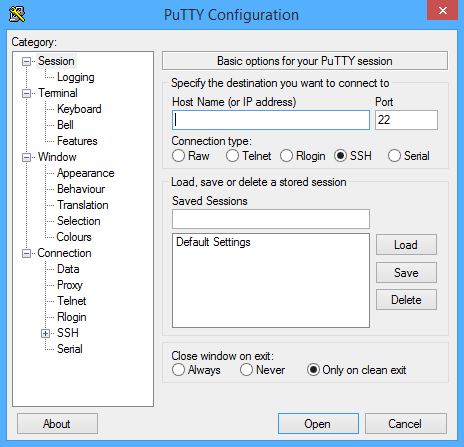 Er is een nieuwe release van PuTTY beschikbaar gekomen. PuTTY is een van de populairste telnet- en ssh-clients, waarmee het mogelijk is om een computer over een beveiligde verbinding op afstand te beheren. Oorspronkelijk was het programma alleen beschikbaar voor Windows, maar er zijn tegenwoordig ook clients voor de diverse Unix-platforms. De changelog voor versie 0.71 kan hieronder worden gevonden.
Er is een nieuwe release van PuTTY beschikbaar gekomen. PuTTY is een van de populairste telnet- en ssh-clients, waarmee het mogelijk is om een computer over een beveiligde verbinding op afstand te beheren. Oorspronkelijk was het programma alleen beschikbaar voor Windows, maar er zijn tegenwoordig ook clients voor de diverse Unix-platforms. De changelog voor versie 0.71 kan hieronder worden gevonden.
These features are new in 0.71:
- Security fixes found by an EU-funded bug bounty programme:
- A remotely triggerable memory overwrite in RSA key exchange, which can occur before host key verification
- Potential recycling of random numbers used in cryptography
- On Windows, hijacking by a malicious help file in the same directory as the executable
- On Unix, remotely triggerable buffer overflow in any kind of server-to-client forwarding
- Multiple denial-of-service attacks that can be triggered by writing to the terminal
- Other security enhancements: major rewrite of the crypto code to remove cache and timing side channels.
- User interface changes to protect against fake authentication prompts from a malicious server.
- We now provide pre-built binaries for Windows on Arm.
- Hardware-accelerated versions of the most common cryptographic primitives: AES, SHA-256, SHA-1.
- GTK PuTTY now supports non-X11 displays (e.g. Wayland) and high-DPI configurations.
- Type-ahead now works as soon as a PuTTY window is opened: keystrokes typed before authentication has finished will be buffered instead of being dropped.
- Support for GSSAPI key exchange: an alternative to the older GSSAPI authentication system which can keep your forwarded Kerberos credentials updated during a long session.
- More choices of user interface for clipboard handling.
- New terminal features: support the REP escape sequence (fixing an ncurses screen redraw failure), true colour, and SGR 2 dim text.
- Pressing Ctrl+Shift+PgUp or Ctrl+Shift+PgDn now takes you straight to the top or bottom of the terminal scrollback.


:strip_exif()/i/2005130098.png?f=thumbmedium)